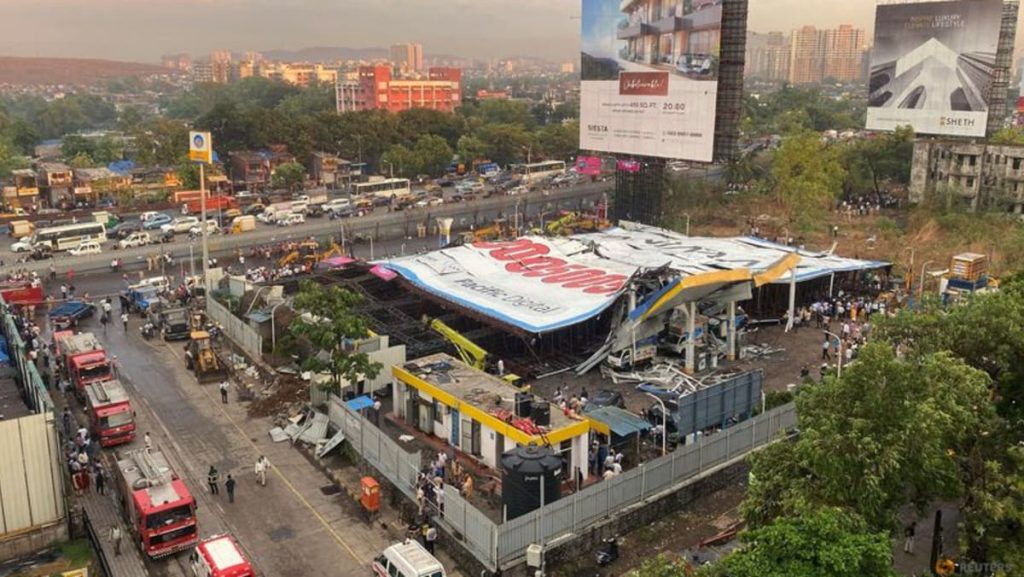In Mumbai, a tragic incident occurred during a rainstorm when a massive billboard collapsed, resulting in four fatalities, 61 injuries, and over 40 individuals feared to be trapped under the debris. The billboard, located in the eastern suburb of Ghatkopar, fell on some houses and a petrol pump due to the gusty winds accompanying the storm. A large-scale rescue operation was launched to save those trapped, involving fire services, police, disaster response teams, and other authorities under the coordination of the Brihanmumbai Municipal Corporation.
Footage captured by news channels and shared on social media platforms showed the billboard swaying in the wind before ultimately collapsing, highlighting the intensity of the storm that led to this tragic accident. The local weather department had warned of moderate rain spells and winds up to 50 kilometers per hour in Mumbai district on that fateful day, contributing to the dangerous conditions that led to the disaster. The Mumbai airport also faced disruptions, with 15 flight diversions and an hour-long suspension of operations reported due to the inclement weather.
Mumbai, along with other cities in India, is no stranger to flooding and accidents caused by heavy rains during the monsoon season, which typically occurs from June to September each year. The city’s vulnerability to such incidents underscores the importance of preparedness and infrastructure resilience to mitigate the impact of natural disasters on human lives and property. The tragic events that unfolded during the recent storm serve as a sobering reminder of the need for proactive measures to prevent similar accidents in the future and ensure the safety of residents in the face of extreme weather conditions.
As the rescue operation continued to search for survivors trapped under the collapsed billboard, the community rallied together to support those affected by the tragedy. The efforts of the emergency response teams, citizen volunteers, and government agencies involved in the rescue operations demonstrated the spirit of solidarity and resilience in the face of adversity. The aftermath of the incident sparked calls for improved urban planning, building safety regulations, and disaster management strategies to enhance the city’s capacity to cope with natural disasters and protect its residents from harm.
Mumbai’s ability to recover from this tragedy and rebuild stronger reflects the city’s resilience in the face of adversity. The coordination among authorities, public support, and lessons learned from this incident will contribute to enhancing disaster preparedness and response capabilities in the future. The loss of lives and injuries resulting from the billboard collapse underscore the urgent need for proactive measures to prevent similar accidents and ensure the safety of residents during extreme weather events. Through collective action, Mumbai can work towards creating a safer, more resilient city that can withstand the challenges posed by climate change and natural disasters in the years to come.


